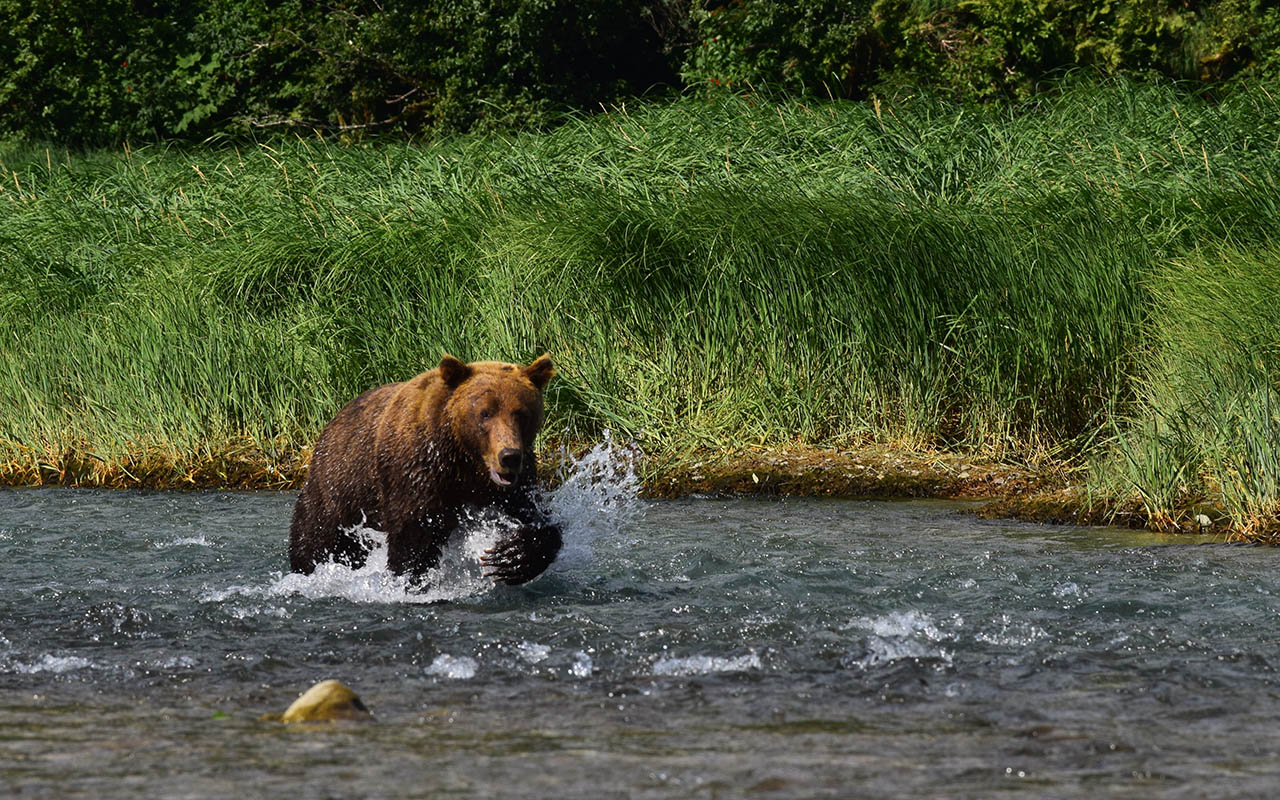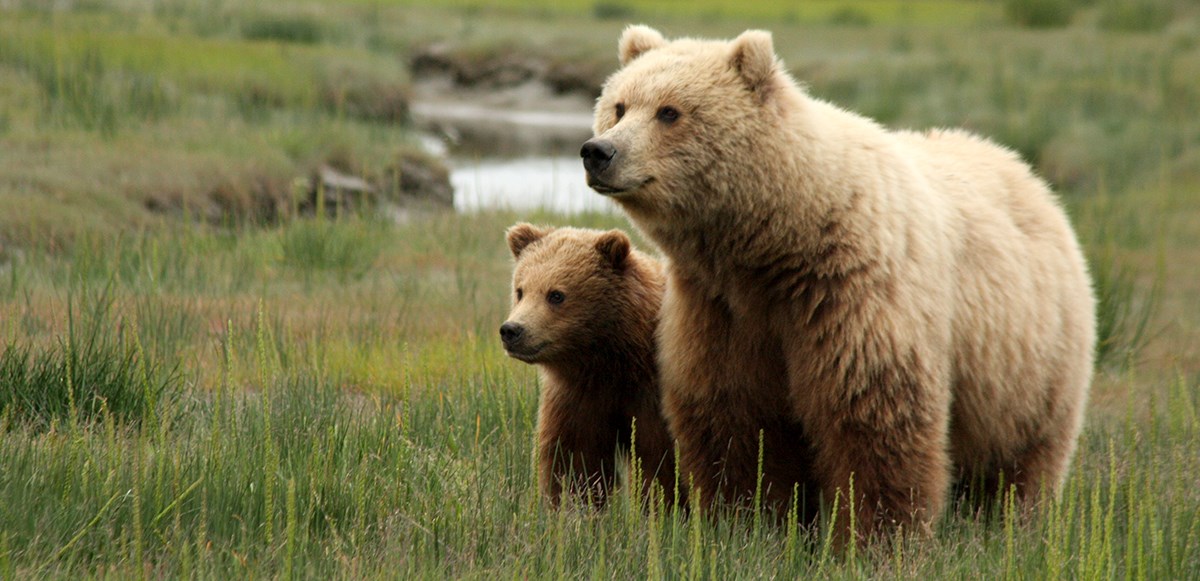
Environmental & Science Education
STEM
Biodiversity
Behavior
Nature
Edward Hessler
I hope you have looked at the Brooks Falls brown bear camera (Katmai National Park, Alaska) this season. There is a short list of facts about the park, the salmon and the bears, e.g., there are about 2000 brown bears in Katmai, 80 to 100 bears in the vicinity of the falls, and on a good day, all 24 hours of it, a bear can catch about 40 salmon (~100 pounds,100,000 calories).
This is the time of the salmon run and the featured fishers are skilled brown bears who use a variety of techniques (and occasionally you will see some humans fishing, too). Young bears practice and also are adept at snarfing up left overs. They also do a fair amount of play wrestling. The site offers several viewing options, including an underwater camera. More than once I have seen the legs and lower body of a paddling bear. The rangers also provide talks about the biology of the bears from time-to-time. These are announced in advance
I've seen a Mama with young charge a male who was way too interested in the cubs and also seen cubs swept over the falls and rescued by their Mother. They, all three of them, bobbed like corks with one going over the falls backwards. I once watched a sleeping bear who slept for nearly a day.
A couple of weeks ago a male killed one of two cubs (not recorded but heard and witnessed by park visitors. It was near the river cameras). The second cub rushed up a tree as the mother ran off and remained there for about two hours, expressing considerable discomfort throughout, before reuniting with its mother. Cub killing by males has a basis in evolution for it brings the lactating female into breeding condition. If she is impregnated by a male, his genes are forwarded to the next generation.
 The death of the cub and the behavior of the mother were the subject of an extensive report on the Brooks Falls blog (very active with many of the commenters who have watched enough to identify individuals) Ranger Mike closed his report by noting, "Brown bears live in a fierce and competitive world, and spring cubs are the most vulnerable of all bears. Through luck, skill, and the guidance of their mothers, cubs can grow into healthy independent bears. It’s a risky and challenging world though, one in which cubs, their mothers, and the river’s most dominant bears all compete to survive within."
The death of the cub and the behavior of the mother were the subject of an extensive report on the Brooks Falls blog (very active with many of the commenters who have watched enough to identify individuals) Ranger Mike closed his report by noting, "Brown bears live in a fierce and competitive world, and spring cubs are the most vulnerable of all bears. Through luck, skill, and the guidance of their mothers, cubs can grow into healthy independent bears. It’s a risky and challenging world though, one in which cubs, their mothers, and the river’s most dominant bears all compete to survive within."
 CGEE Student Voice
CGEE Student Voice
No comments:
Post a Comment